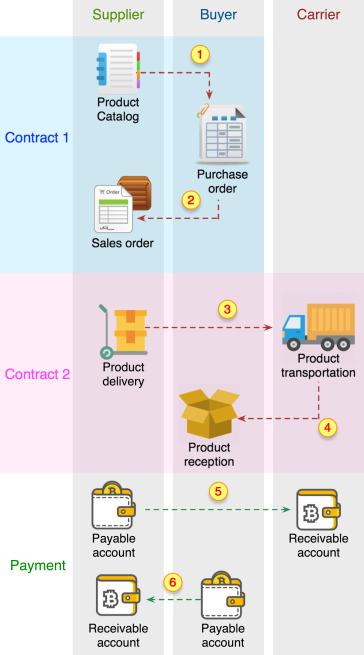Blockchain is a distributed ledger made up of immutable blocks of data chained together to create an encrypted history of transactions.
It carries the functionalities of being automatically self-executed, immutable, providing permanent records with real-time information, reducing cumbersome documentation using high processing power and avoiding human errors. These features are attractive for commercial use that involves a large amount of repetitive and similar transactions. The number of industries deploying blockchain-based solutions is growing.
The concept of smart contracts was started by computer scientist, Nick Szabo, in the 1990s. He defined a smart contract as ‘a set of promises specified in digital form, including protocols which the parties perform on those promises.’
Szabo illustrated his definition by reference to a vending machine: a consumer inserts coins into the machine (satisfying the condition of the contract); the vending machine automatically dispenses the chocolate bar (meeting the terms of the contract).
The transaction is facilitated by the software, which enables the transfer of output (the chocolate bar) on the occurrence of input (the correct payment). A smart contract is, therefore, a computer program that has certain inputs and which executes a set of instructions, to come to one of many pre-determined outcomes. The computer code defines obligations between parties and it runs on a blockchain.
Smart contract v traditional natural language contract
Contracts define the obligations and considerations between the parties. The legal principles of contract law are well established and their application is pervasive in our daily life. They form the bedrock of doing business. Contracts written in natural language can be traced back to the Middle Ages – and we have never considered alternative forms until the birth of smart contracts.

With such attractiveness emerging from blockchain technology, can smart contracts replace natural language contracts? A short answer is no, not at present. Smart contracts handle only the pre-determined outcomes programmed in the software. Whereas natural language contracts allow room for courts to interpret the meaning and exercise judgment to maintain justice and fairness. So where are we now?
Click to view larger image.
Figure 1 sets out the various stages of the development of smart contracts with the eventuality of replacing natural language with computer codes:
We are at Stage II, advancing.
The rise of smart contracts
However, even with the limitations, smart contracts are efficient in many ways and generate positive impacts on the contracting lifecycle.
Optimum benefits can only be gained if smart contracts are enforceable, accepted by legal practitioners, regulated by the authorities and recognised by legislators. Figure 2 shows the timeline of the advancement of smart contracts from being the least accepted emerging technology, to becoming an integral part of legal practices and a mainstream area of law.
Click to view larger image.
Four years ago, the legal profession did not embrace blockchain technology with much enthusiasm. A survey done by PWC on the top 100 law firms revealed that blockchain technology was not interested/aware and it was classified as being under research by law firms[1]. The technology was the least mature in the application among other digital technologies at the time, like AI, robotic automation, and predictive analytics.
Current legislation
In 2019, the UK Jurisdiction Taskforce (UKJT) published a legal statement on smart contracts[2]. UKJT is an advisory body with the backing of the UK Government and composes of industry experts from practices, regulatory bodies, and the judiciary.
The legal statement asserts that a smart contract satisfies the legal requirements of creating an agreement between parties and can have contractual force, just like a more traditional or natural language contract.
The rights and obligations written in code are binding and enforceable under English contracts law. The report concludes the common law is capable to respond consistently and flexibly to new commercial mechanisms. Judges can apply and adapt by analogising existing principles to new situations as they arise.




